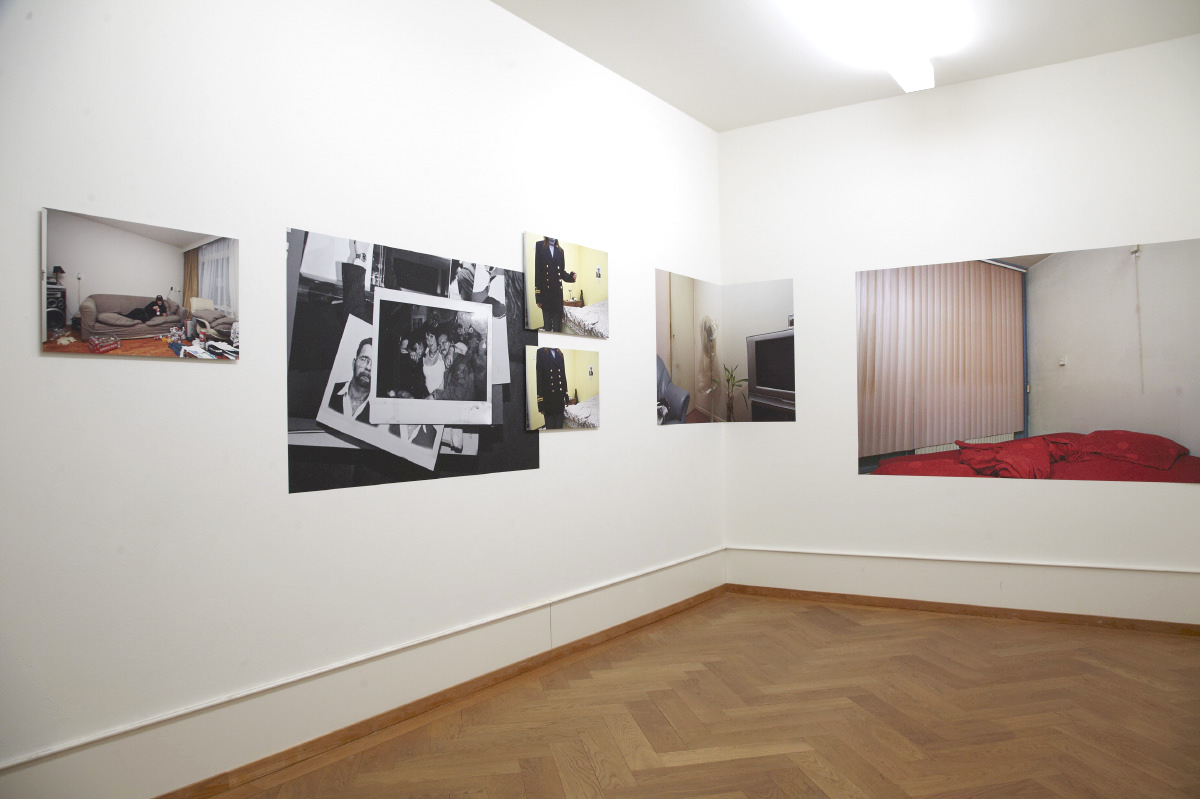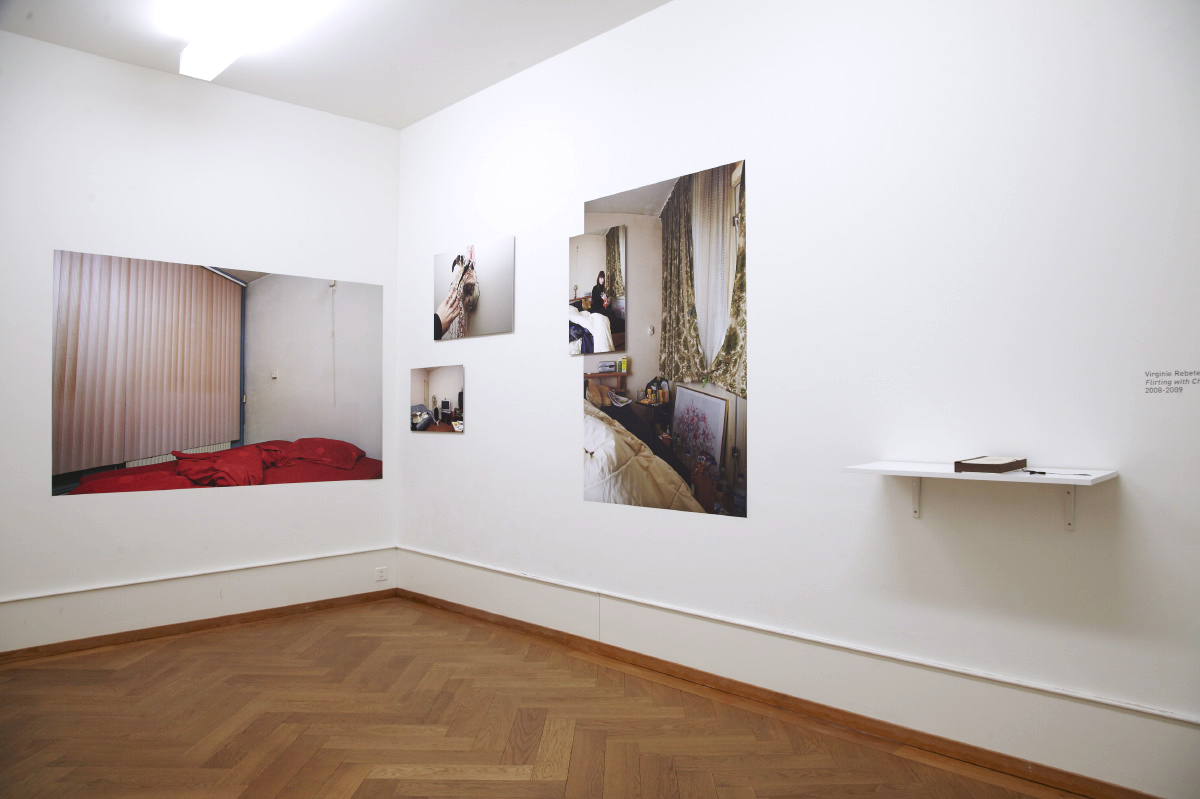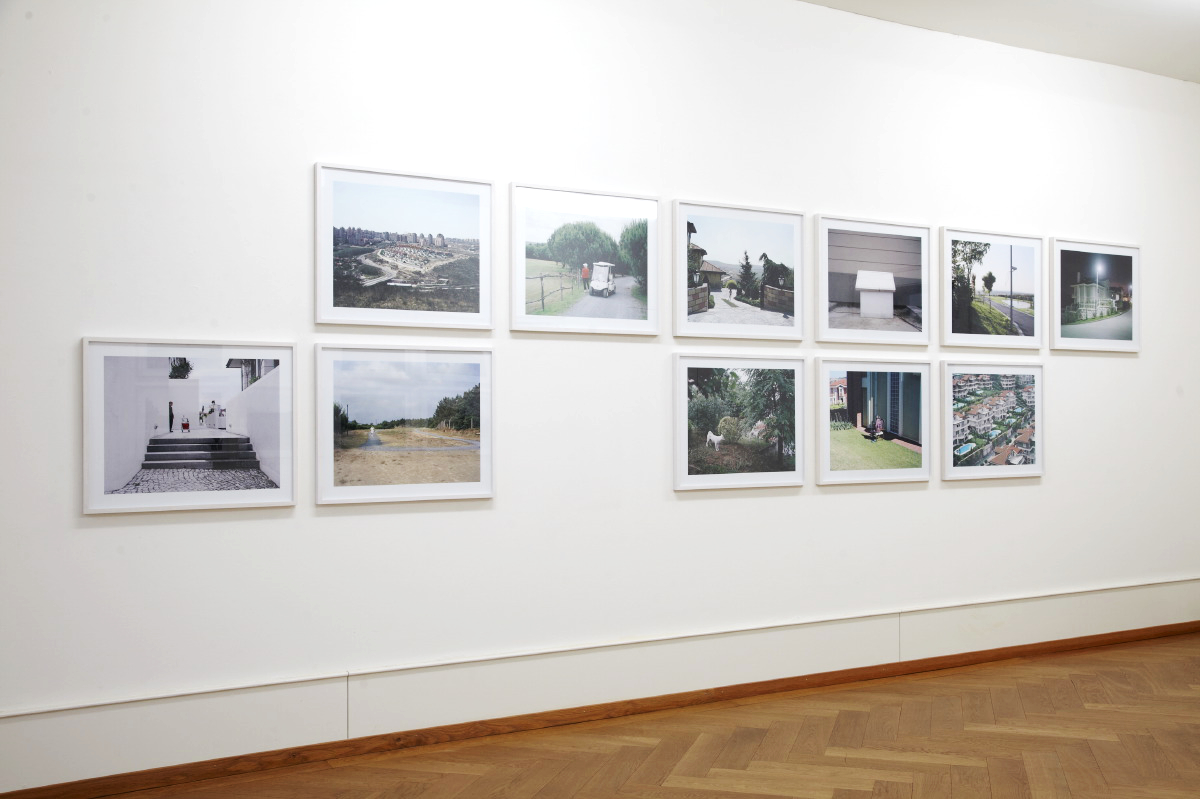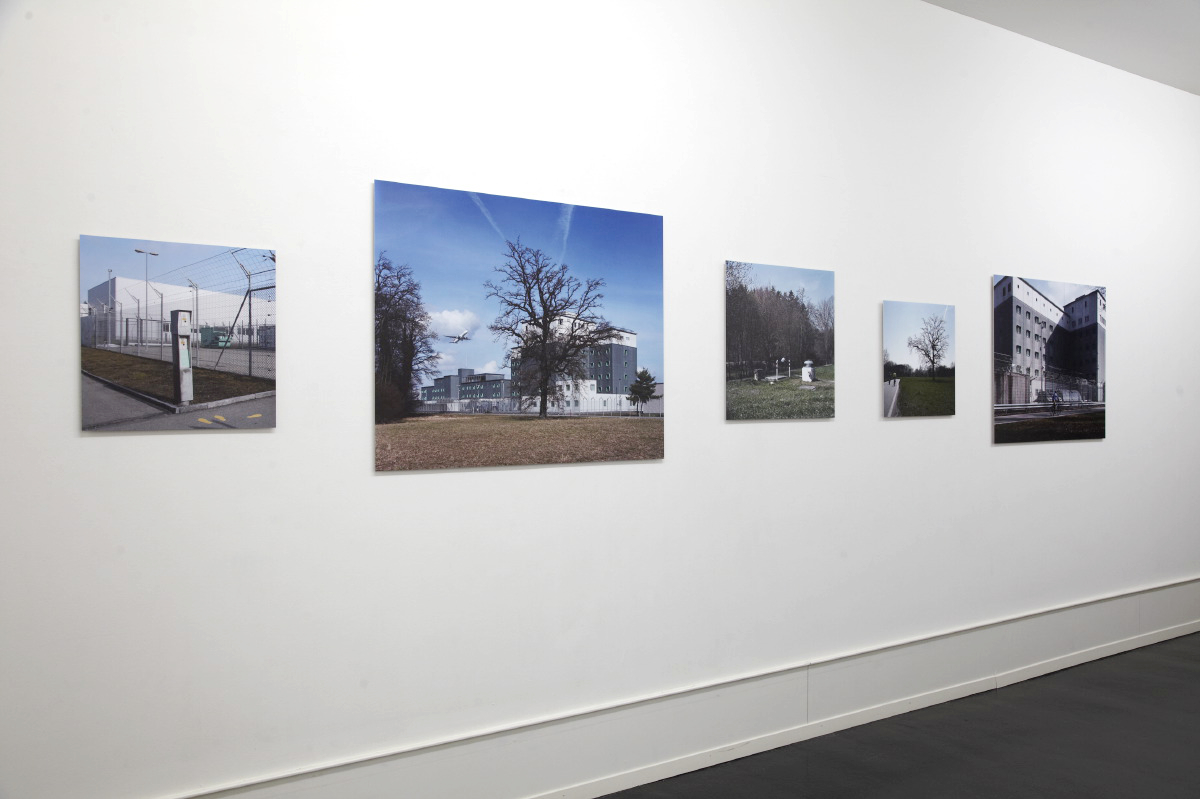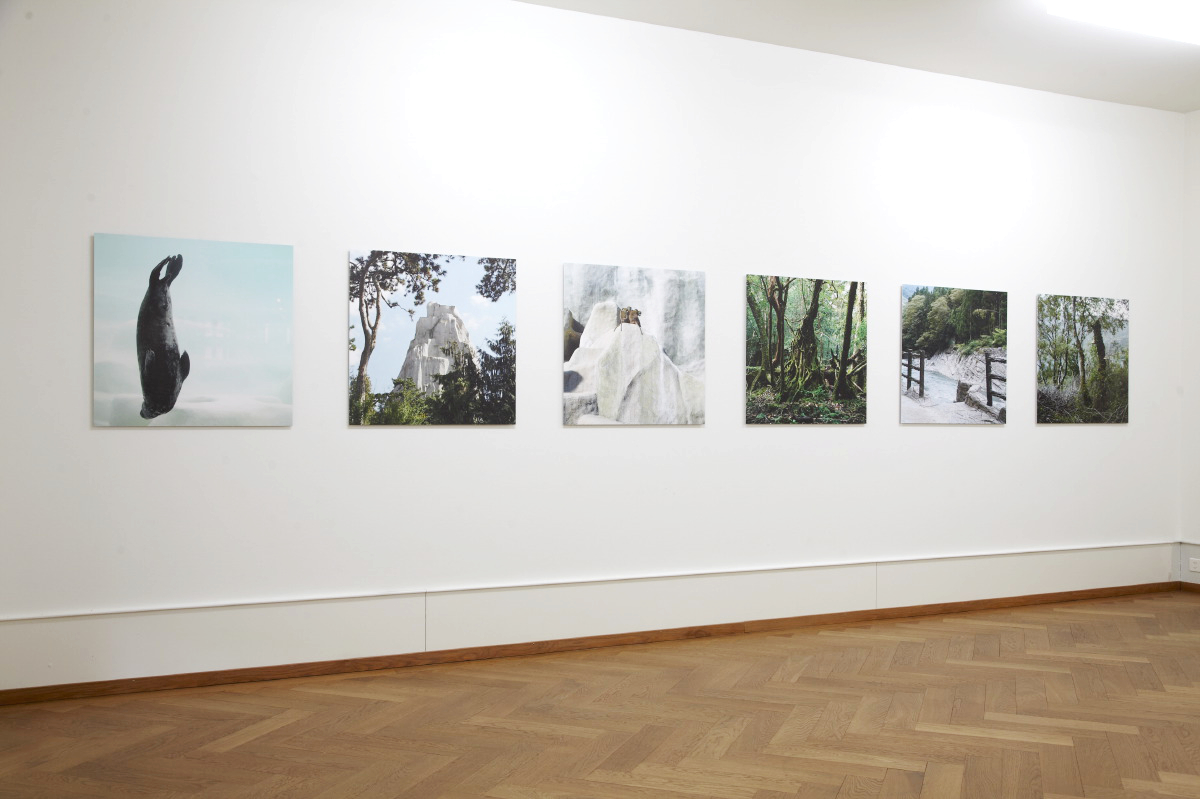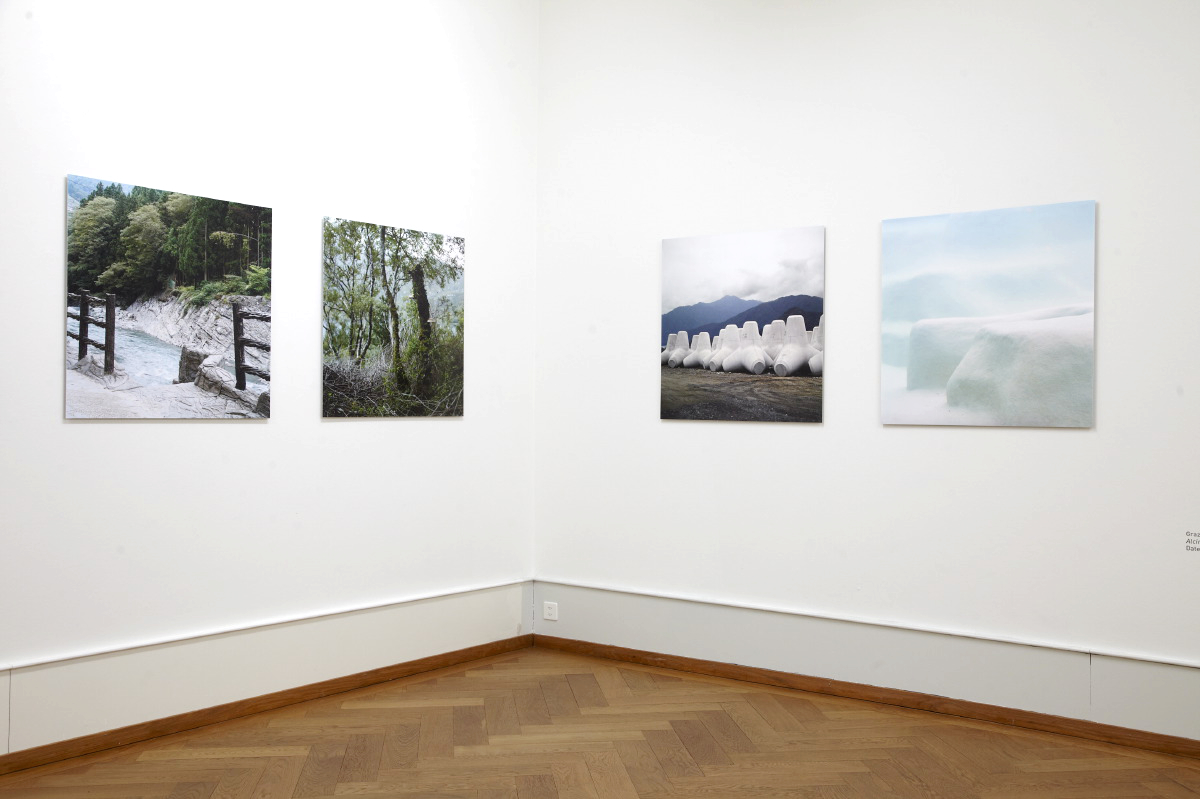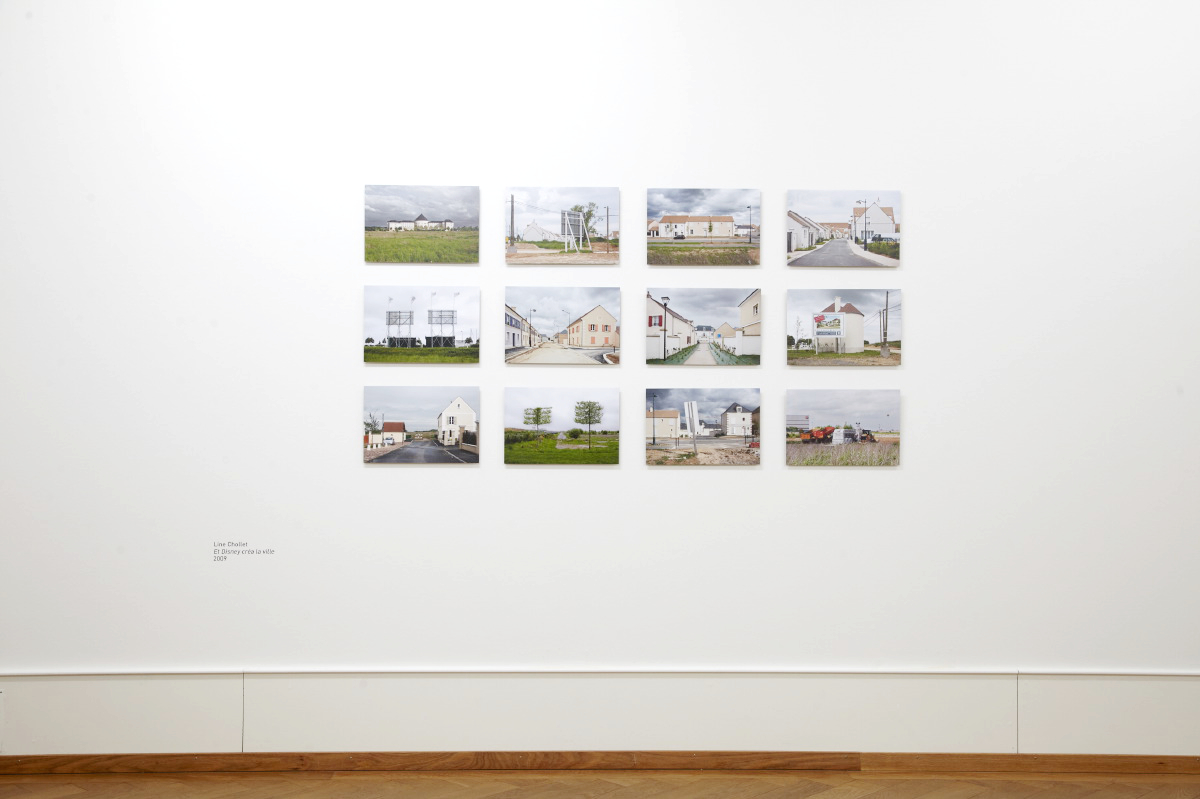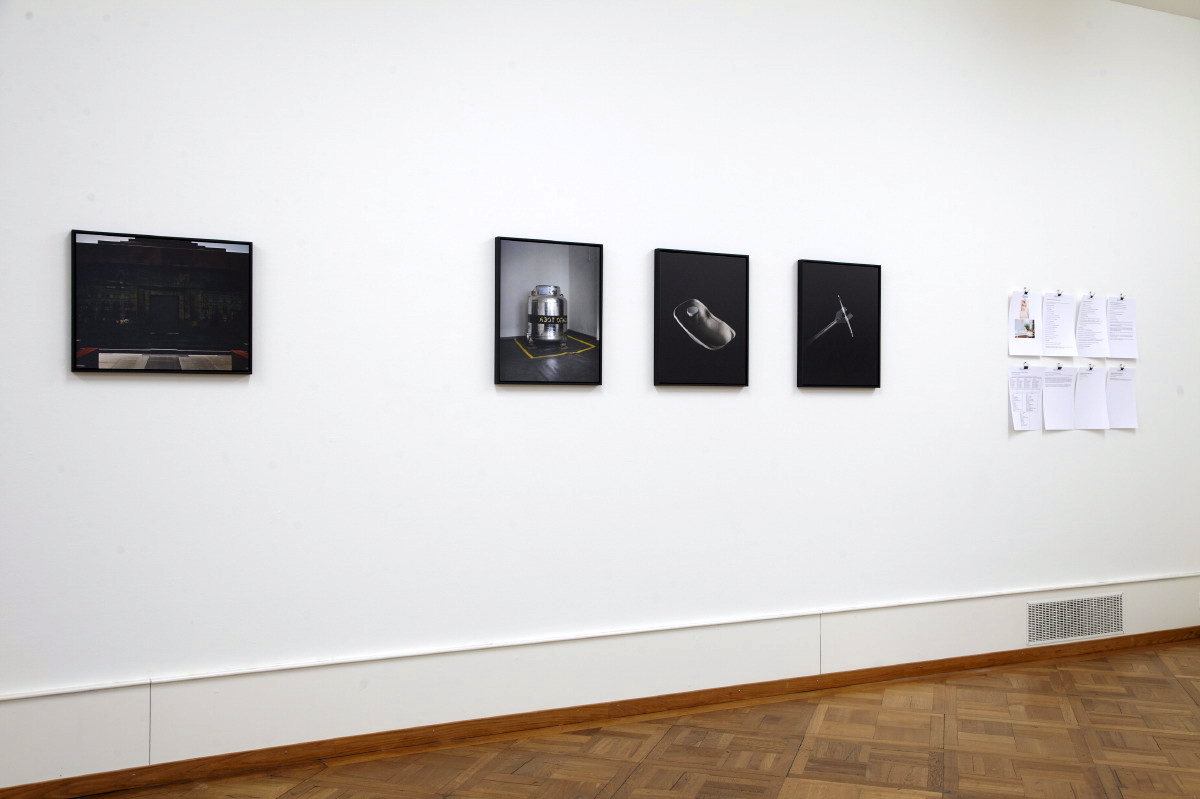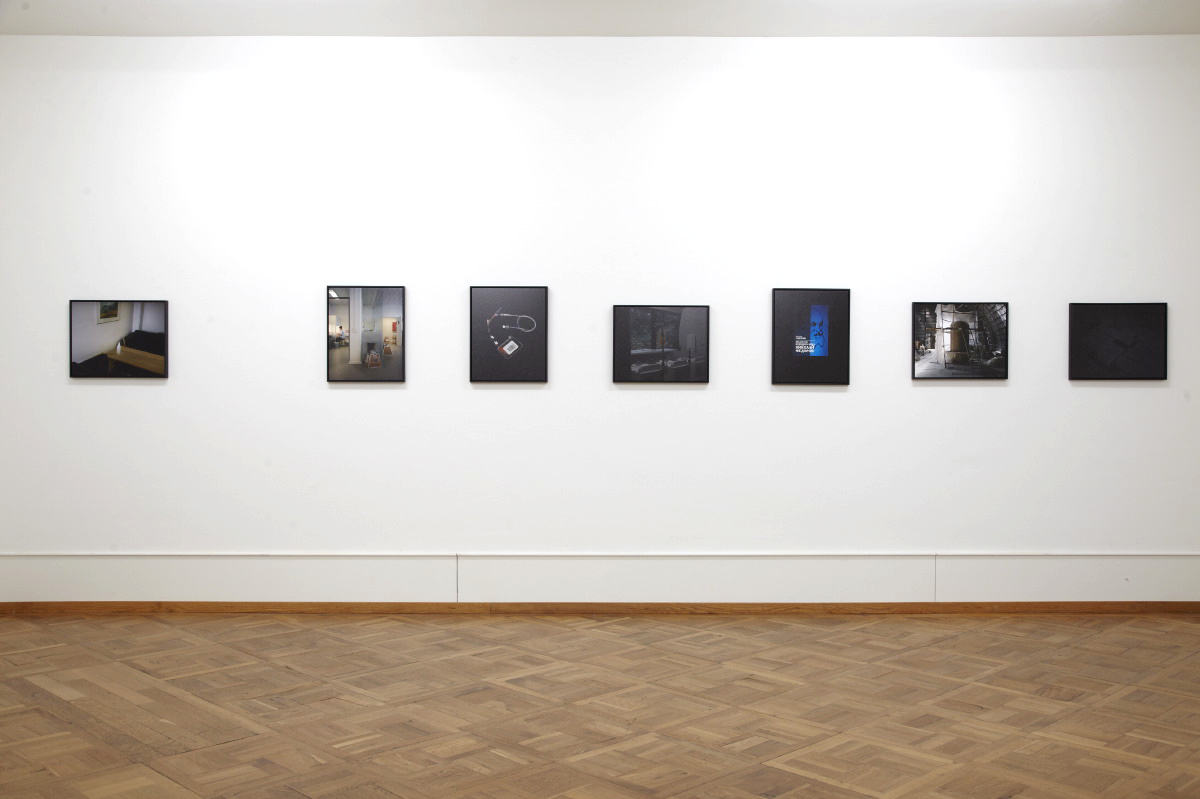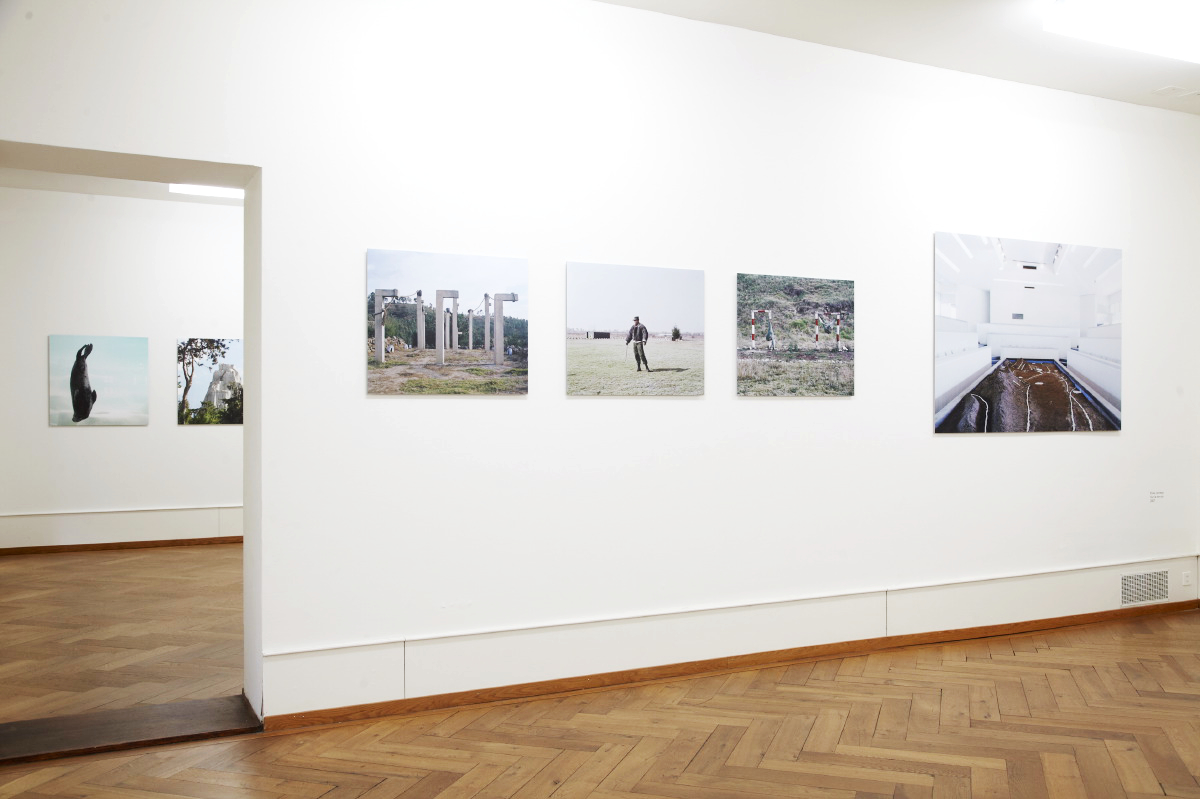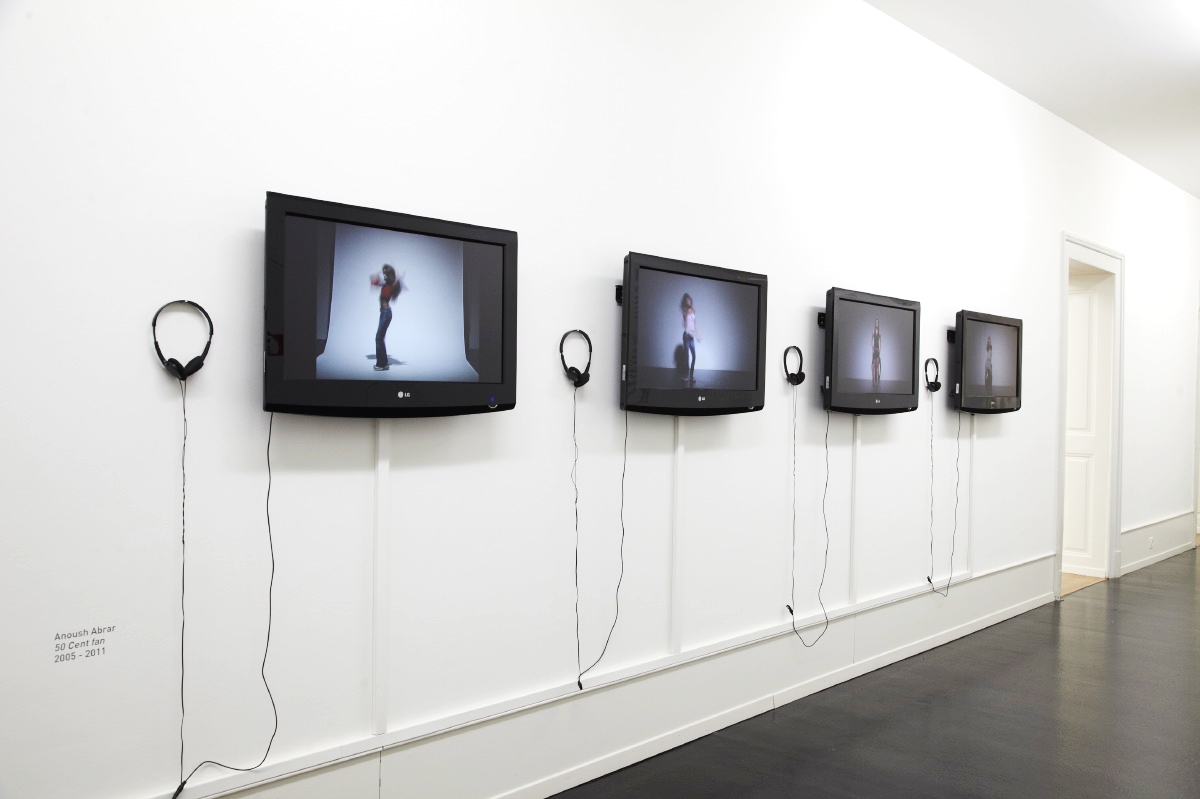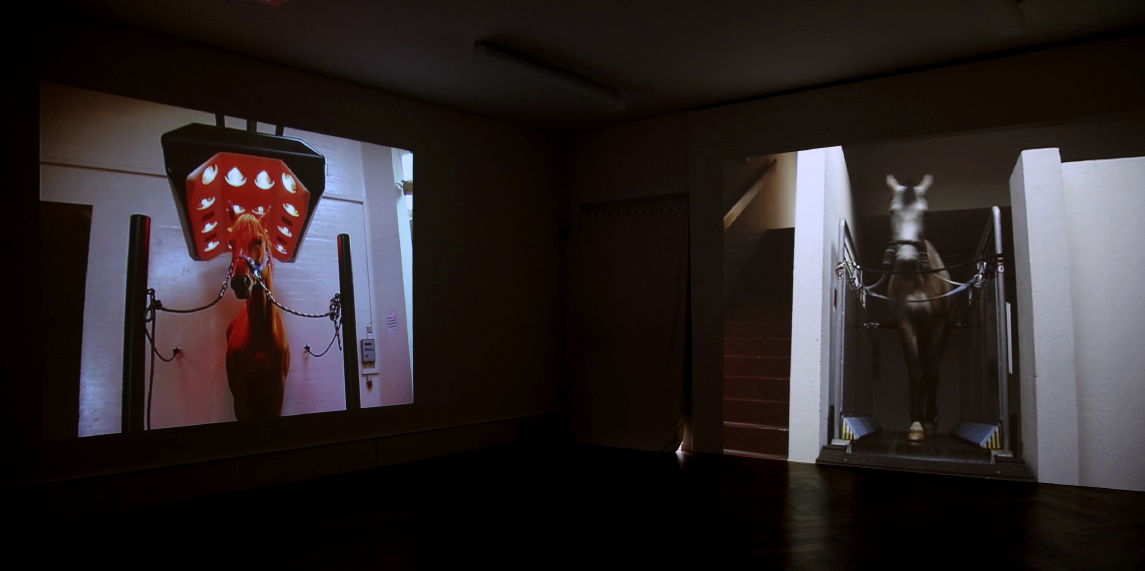 Curated with Maude Oswald
Curated with Maude Oswald
2012
Photoforum PasquArt, Biel
Contemporary western societies tend towards an ideal of preservation, individual protection and well-being that permeates through all instances of a daily life that sometimes ends up feeling like a utopia.
From urban development projects (Laurence Bonvin, Line Chollet) to sperm and stem cell banks (Yann Mingard), from the links between the animal and plant kingdoms (Graziella Antonini) to the social construction of bodies and their making (Anoush Abrar), the real see itself submerged, here, by ideals falling prey to forms of limitations to the liberties of doing, being, and thinking. The Breath Down Our Back questions these issues through plural insights.
While the human gure is only rarely shown in an explicit way, it haunts each one of the pieces, slithering in to impose its centrality. The presence – or absence – of the human allows to question the needs and fears of a society which is slowly torn apart by a compulsion for preservation, which, often, prevents protection against forms of social ostracism (Anne-Julie Raccoursier). Playing on the cracks between real and fiction, The Breath On Our Back questions the oscillating movements between what is shown and what can only be guessed: from prison cells to fake military exercises (Clovis Baechtold, Elisa Larvego), from the social codi cation of bodies to the intimate fear of death (Virginie Rebetez), each visual proposition holds elements that call for discovery, then questioning, so as to allow them to be placed in a global comprehension of humanity’s becoming.
Une exposition soulignant les liens entre hygiène et utopie, soit entre les préoccupations constantes de préservation, de sécurisation et de bien-être, et les dérives propres à la poursuite de cet idéal.
The Breath On Our Back aborde une problématique ancrée depuis des siècles dans l’histoire de l’humanité, et dont la constance relève de préoccupations directement liées au bien-être et à la santé. De la déesse grecque Hygie à l’Utopie de Thomas More, des règles d’urbanisme pour une cité idéale évoquées par Jules Verne (Les Cinq Cents Millions de la Bégum) aux développements incessants de la médecine moderne et de ses influences sur le corps et l’esprit, l’homme réfléchit et agit dans une perspective faisant toujours se croiser l’individu et le devenir collectif. Hygiène, préservation et protection de l’être humain façonnent ainsi la société dans une volonté d’amélioration, sans pouvoir empêcher, parfois, les dérives propres à toute poursuite d’un idéal.
La société occidentale contemporaine tend vers un idéal de protection, de sécurisation et de bien-être individuel qui se déploie dans tous les instants d’un quotidien aux accents, parfois, d’utopie. De projets urbanistiques aux banques de conservation de sperme, des liens tissés entre monde végétal, animal et humain à la construction sociale des corps et de leur devenir, le réel se voit submergé, ici, par des idéaux en proie à des formes de rétrécissement des libertés de faire, d’être et de penser. The Breath On Our Back questionne ces enjeux par le biais de perspectives plurielles qui s’inscrivent dans une dynamique de monstration critique.
With Anoush Abrar, Graziella Antonini, Clovis Baechtold, Laurence Bonvin, Line Chollet, Elisa Larvego, Yann Mingard, Anne-Julie Raccoursier, Virginie Rebetez
Conferences by Vincent Barras and Tilo Steireif
